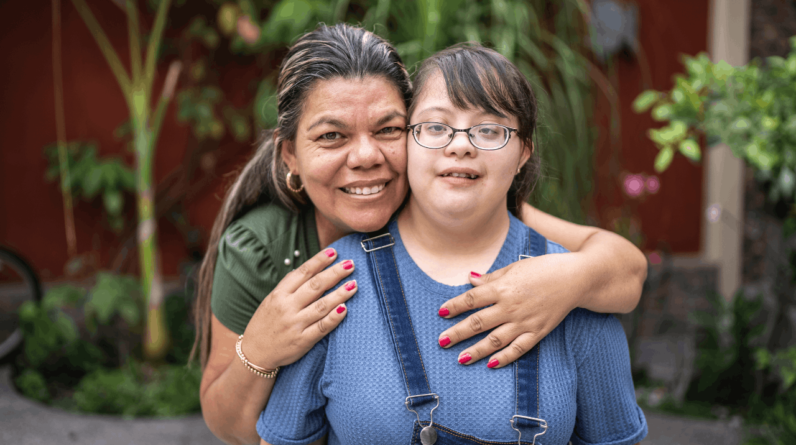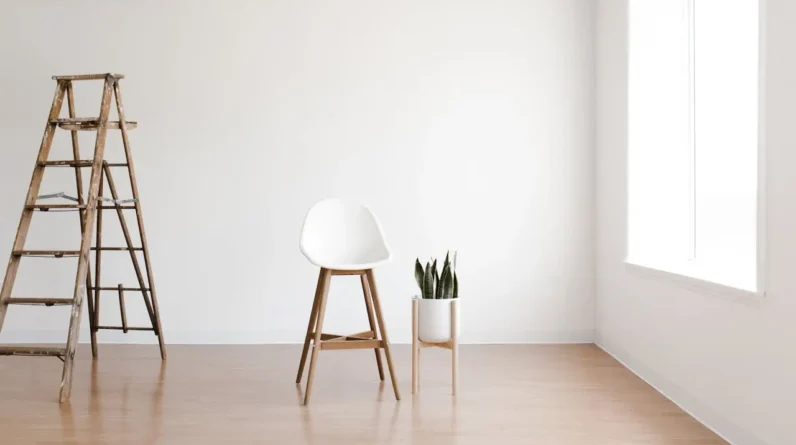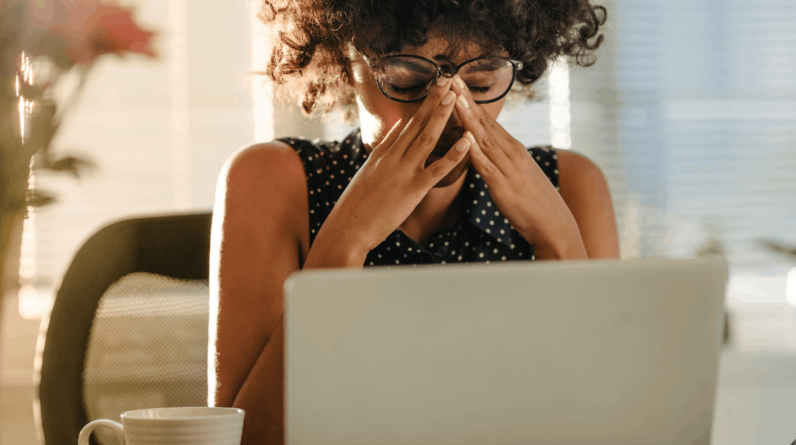
Anxiety has been off the charts in recent years.
The Anxiety and Depression Association of America reports that anxiety disorders are the most common type of mental health diagnosis.
Here are a few statistics that may interest you:
- Over 40 million people over the age of 18 in the U.S. have been diagnosed with at least one anxiety disorder.
- Less than 40% of that 40 million actually commit to long-term treatment to manage or overcome the anxiety.
- Those diagnosed with an anxiety disorder are up to five times more likely to be admitted into the hospital with some sort of psychiatric illness.
That’s a lot of people struggling with high levels of anxiety – and many are not doing much to try to manage it.
Now, there are many millions more who struggle with high levels of anxiety who haven’t been diagnosed with an anxiety disorder. Many of them have never set foot in a psychiatric or mental health facility to discuss their anxiety levels.
They simply live life with intense anxiety, or in “chronic survival mode”, and quite honestly, their quality of life suffers because of it.
If you struggle with any amount of anxiety, then learning how to relax your nervous system can come in handy.
Whether it takes any of these forms, learning and applying anxiety reduction techniques can decrease anxiousness.
- social anxiety
- situational anxiety
- chronic anxiety
- an anxiety disorder
If you can relate to having frazzled nerves, try these anxiety reduction techniques. They can help you better regulate your nervous system and reduce anxiety.
4 Techniques to Help You Reduce Anxiety
1. Mindfulness
To be mindful means that you pay attention to the present moment.
You focus on the “now”, rather than ruminate about the past or think about the future.
How can you become more mindful?
Your Ultimate Mindfulness Guide: Become More Happy and Less Stressed
Start paying attention to your breath.
- Notice it. Follow it in and out.
- At the same time, be aware of your body.
- Scan it from head to toe, seeing if you can feel any sensations.
- Feel your feet against the ground or your butt in the chair.
Be aware of the space that you’re in.
- What do you see?
- What do you hear?
- How are you feeling?
It’s so easy to live in autopilot mode, all wrapped up in thoughts. If you’re anything like me, staying in my head causes me to feel anxious. When I take time to bring my attention to my immediate space, including my body and breath, I can relax. I can remind my nervous system that it is safe. That I am safe.
So, tip number one for relaxing your nervous system is practice mindful living. Be in the “now” as often as you can be. Be present when you’re making dinner, cleaning up, getting ready in the morning, playing with your kids, and so on.
It helps!
2. Meditation
Meditation is one technique that has proven to reduce anxiety and stress.
In fact, meditation has been around for thousands of years and has been used for relaxation and as a tool for spiritual development. It’s quite easy to meditate. The hardest part is to actually make yourself sit quietly for any length of time.
In its simplest form, meditation is sitting quietly, focusing on the inhale and exhale of your breath. The goal is to focus on the present and quiet the mind.
You’re aware of the thousands of thoughts running through your mind every day. It’s difficult to get a quiet moment in the mind, especially in the noisy environments we live in.
The more you focus on going within, observing your breath in and out, the more your nervous system will relax. And, less thoughts will be swirling in the mind. Sure, random thoughts will come in, but they do not have to stay. Simply observe them and let them go.
If you’re not used to meditating, it’s a good idea to begin with just a few minutes at a time. To sit still and quiet the mind for three minutes might sound easy, but it’s harder than you think. What will happen over time is that you will get used to the quiet, being mindful, and come to experience a deep sense of relaxation.
To reduce anxiety levels, get in the habit of practicing meditation for anxiety every day.
- Start off with a few minutes and increase in increments up to 15 or 20 minutes per day.
- A great time to do this is either when you wake up or right before you go to sleep.
- It’s alright if you fall asleep while meditating in the evening.
- The technique may help you sleep peacefully.
Also, during the day if you feel anxiety increasing, take a few minutes to yourself and practice meditation for a few minutes. Take a few deep breaths and then concentrate on your breathing.
You will find that within a couple of minutes, your feelings of anxiety will decrease. Meditation for anxiety is great for reducing stress and for growing spiritually.
3. Yawn
Did you know that many athletes make themselves yawn before competing? The same goes for speakers, musicians, and more.
A good yawn can help your nervous system feel safe and more relaxed because it effectively cools your brain off, increasing blood flow.
It’s an easy anxiety-reduction tool that you can use any time. It can also help boost your mental awareness, which can be helpful while you’re at work, taking a test, and so on.
One interesting note about yawning is that it is herd behavior. It helps keep the pack from going wild, encouraging everyone to calm down.
Yawn as often as you want. Even a fake yawn has some positive effects on your body.
4. Soften your eyes
If you’re feeling anxiety, soften your eyes like you do when you’re daydreaming.
When we daydream, we’re not really focusing our eyesight on anything in particular. We soften the eyes, and if we’re daydreaming about something we consider good, we may even smile a little. I like to think of it as ‘zoning out.’
This softening of the eyes triggers the parasympathetic part of your nervous system, which actually helps you feel less anxiety.
Try it out. You simply soften the muscles around your eyes and don’t focus on anything in particular. Become aware of your peripheral vision too, expanding your awareness. Breathe slowly and allow your body to relax.
This is a simple tool to help you experience less anxiety.
Anxiety reducing techniques can be very helpful in terms of helping you manage feelings of anxiety in the moment, and with practice, over the long term.
But looking at the bigger picture of how you can rewire your brain in better, healthier ways – well, that’s something called neuroplasticity – and you may want to look into it.
Neuroplasticity: What is it & Why Should We Care?
Neuroplasticity is the ability of the brain to change throughout life through growth and reorganization.
It is defined as the ability of the nervous system to change its activity in response to intrinsic or extrinsic stimuli by reorganizing its structure, functions, or connections after injuries, such as a stroke or traumatic brain injury (TBI). – National Library of Medicine
It’s basically the ability of the brain to be rewired in better, healthier ways.
For those struggling with anxiety, this is great news.
To put it simply, if you’re struggling with higher levels of anxiety, your nervous system and brain have learned to remain in “survival mode”. Even though you’re not necessarily in dangerous situations (like being eaten by a tiger or crushed in an avalanche), your nervous system thinks you are.
It’s adapted to life in hypervigilant mode, always on the lookout for danger. It’s thinking it’s in danger, shooting a chemical cocktail through your body that makes you feel “anxiety”.
Now, that’s great if you truly are in danger. If a bear is zoning in to get me, I want that chemical cocktail to boost my adrenaline to get me out of there, fast!
But many who report high anxiety aren’t really in dire or life-threatening circumstances, but their brain/nervous system think they are.
The newer science of neuroplasticity says you can work toward rewiring those neural pathways in your brain that automatically think danger is lurking around every corner.
It takes time, effort, and likely some expert help, but it’s possible.
2 Ways to Start Rewiring Your Brain to Reduce Anxiety
1. Learning, Growing, and Healing Anxiety
I won’t get into all the “whys” of how you may have become ultra-anxious.
Reasons could range from:
- early childhood trauma
- abuse
- neglect
- insecure attachment style
- accidents
- chronic stress
- lifestyle choices
Many people struggle with high levels of anxiety because they are on the go all the time. In a world where hustle is perceived as “successful”, it’s not hard to immerse yourself in work, events and activities and never really stop to check in with your body.
When is that last time you paused and checked in with your nervous system to see if its:
- hyper aroused?
- hypervigilant?
- stuck in the “fight, flight, or freeze”/ stress response?
How many times a day do you pause, do a body scan to see what’s going on in your thought life and body? It’s easy to just get stuck on autopilot, running, ruminating, pushing it, escaping, numbing out – you get the idea.
But, we can change this.
2. Feeling the Anxiety
The sensations of anxiety used to make me feel like I was going to die.
I would do all that I could to NOT feel it:
- repress
- get busy doing something
- disconnect completely from my emotions. (Space out, shut down, go elsewhere in my mind, etc.)
But once I started learning that the sensation of anxiety is just that – sensations – I started learning how to feel it, be with it, and let it pass through my body, so-to-speak. I am learning to relax into it, not judge it, and at the same time remind myself (my nervous system) that it is safe.
I am taking the time to breathe slowly, deeply – which also helps me calm that anxiety.
I’m taking a season to learn more about managing anxiety by getting in touch with my thoughts AND my body. Learning tips, tricks, and techniques like these to help rewire my own brain and let my nervous system relax more often.
You Don’t Have to Struggle. Reduce Anxiety With Practice
I used to think I was a slave to high anxiety. Eventually, I started learning that I don’t have to let it control my life.
Is it completely gone? No, but it’s better and I’m still learning and practicing.
There are many anxiety-reduction tools and techniques to help us reduce anxiety, as well as learn how to hold that anxiety without letting it freak us out.
It takes time, effort, and practice. But it’s absolutely worth the investment once you start to feel relief.
Let us know if any of these worked for you!
Photo by Brad West on Unsplash







